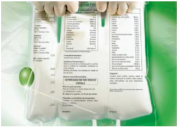 As mentioned in one of our earlier entries two important trials (Hermanns et al. The Lancet and Caesar et al. NEJM) have indicated that early parenteral nutrition (PN) might actually be harmful and a late PN strategy should be the standard of care. Despite this the debate has continued and remains highly controversial. This is nicely reflected in recent guidelines regarding the timing of supplemental PN. While the European Society for Clinical Nutrition and Metabolism (ESPEN) recommends PN within 24-48h in patients who are expected to be intolerant to enteral nutrition (EN), the American Society for Parenteral and Enteral Nutrition (ASPEN) recommends postponing the initiation of PN until day 8 after ICU admission. In order to clarify things a little Bost et al. have now published a systematic review on the timing of parenteral nutrition in critical care (Open access). From 3520 initially screened articles only four randomised controlled trials and two prospective observational studies remained after critical appraisal. "In conclusion it seems to be reasonable to assume that in critically ill patients, when full enteral support is contraindicated or fails to reach caloric targets, there are no clinically relevant benefits of early PN compared to late PN with respect to morbidity or mortality end points. Considering that infectious morbidity and resolution of organ failure may be negatively affected through mechanisms not yet clearly understood and acquisition costs of parenteral nutrition are higher, the early administration of parenteral nutrition cannot be recommended." The Review in one short sentence: Early PN has no advantage over late PN, but might be actually harmful. Bost et al. Annals of Intensive Care 2014, 4:31 Read more: ESPEN Guidelines on parenteral nutrition, 2009 A.S.P.E.N. Guidelines for the provision and assessment of nutrition support therapy in the adult critically ill patient BIJC.org on: Starting early PN weakens the critically ill 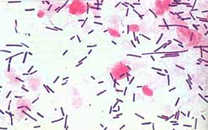 Antibiotic-associated diarrhoea and antibiotic induced Clostridium difficile diarrhoea are a constant problem in the ICU, especially in the elderly patient. There is still some debate going on about prescribing lactobacilli or bifidobacteria for the prevention and treatment of this sort of complication. In this Lancet multi centre, randomised, double-blind, placebo-controlled, pragmatic, efficacy trial this was studied on almost 3000 patients: 10.8% diarrhoea with lactobacilli or bifidobacteria versus 10.4% diarrhoea in the placebo group. No difference! One drug less to prescribe... Lancet 2013 Oct 12;382(9900):1249-57 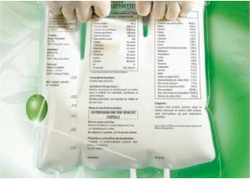 The amino-acid glutamin seems to play an important role in the critically ill patient by inducing cellular protection pathways, modulation of the inflammatory response and the prevention or organ injury. Glutamine depletion on ICU admission has been linked with increased mortality and clinical trials form the last 20 years demonstrated reduced mortality, infectious complications and ICU/hospital length of stay when giving glutamine. This is one of the reasons ICU's give glutamine when total parenteral nutrition (TPN) is required. ...sounds like all ICU patients should get glutamine! In April 2013 the NEJM published a randomised trial of glutamine and antioxidants in critically ill patient by Heyland et al. Against their expectations they found a trend towards increased mortality at 28 days among patients who received early glutamine intravenously and enterally as compared to those who did not. Actually, the early provision of glutamine did not improve clinical outcome and glutamine was associated with an increase in mortality among critically ill patients with multi-organ failure. ... so should we stop giving glutamine? In April 2014 now Heyland and his co-authors (the same guy from the NEJM paper) published a systematic review in Critical Care. In this paper they looked at 26 publications on parenteral glutamine supplementation in the ICU and could actually show that in conjunction with nutrition support glutamine was associated with a significant reduction in hospital mortality and hospital length of stay. They stated that parenteral glutamine supplementation as a component of nutrition support should continue to be considered to improve outcomes in critically ill patient. ... that all seems confusing and contradicting! Actually all these papers aren't conflicting at all. They offer a differentiated insight into the usage of glutamine... the answer lies in the written details of the study settings. Heylands publication in the NEJM presents a quite different setting compared to most of the previous studies where glutamine was found to be rather beneficial. In the NEJM's publication patients received the highest dose of glutamine (more than in other studies before) which was given intravenously and enterally. This study specifically included critically ill patients with multi-organ failure, most of them in shock. In most previous studies this was an exclusion criteria. Also treatment with glutamine was initiated within 24h after admission to ICU, whereas other studies gave glutamine later in the course of disease together with TPN. And finally all these patients received enteral nutrition, while previous studies mostly focused on parenteral nutrition (TPN). And finally, Heyland (again) just now published a post hoc analysis of the NEJM publication in the Journal of Parenteral & Enteral Nutrition (JPEN) showing that early administration of high-dose glutamine separately from artificial nutrition had the greatest potential to be harmful in patients with multi-organ failure that included renal dysfunction. For these reasons Heyland came to the conclusion that early administration of glutamine in critically ill patients with multi-organ failure was harmful. At the same time it seems beneficial when given after resolution of shock especially in the conjunction with TPN. Summarized: - Early administration of high-dose glutamine in critically ill patients with multi-organ failure may be harmful, especially in conjunction with renal dysfunction - Supplemental glutamine (predominantly as a component of TPN) may improve clinical income when given to appropriate patients and after resolution of multi-organ failure and shock - Supplemental glutamine should not be given in high dose (>0.5 g/kg/d) Wischmeyer PE, Critical Care 2014,18;R76 Qi-Hong C, Critical Care 2014,18;R8 Heyland D, N Engl J Med 2013;368:1489-97 Heyland D, J Parenter Enteral Nutr, May 5 2014  Nutrition in critically ill patients remains a topic often discussed and often debated on. The input you will get by all sorts of different experts is almost endless and I sometimes got the impression we don’t know that much after all. This short article in Intensive Care Medicine of this month (e-published in Nov. 2013) very nicely shows you what we at least believe at this moment to be the truth about nutrition in the ICU. It’s nice and short and gives a very good overview on our current knowledge in this field... ... an excellent introduction for physicians entering the area of Intensive Care for the first time. Singer P et al.Intensive Care Med. 2014 Feb;40(2):252-5 Take Home Messages:
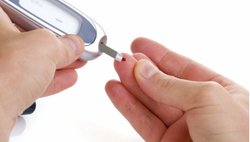 Already years ago it has been noticed that stress and severe injury results in insulin resistance among ICU patients. This also occurs in patients who had no diabetic problems before an insult. Van den Berge et al. therefore postulated that an intensive glucose control in ICU patients would be of benefit. And indeed, in 2001 they published the well known article on intensive insulin therapy in critically ill patients. They showed that a tight glucose control results in reduced morbidity and mortality (by 42%) among ventilated, critically ill patients in surgical intensive care units (1548 patients included). Unfortunately though some clinical trials since have failed to reproduce this benefit of tight glucose control. A meta analysis in JAMA 2008 looked at 28 randomized controlled trial with a total of 8432 patients and found that tight glucose control was not associated with significantly reduced hospital mortality but an increased risk of hypoglycemia. The multinational NICE-SUGAR trial, including 6104 patients, finally made an end to tight glucose control on most ICU’s around the world. Against expectation mortality in the intensive-control group was higher as well as severe hypoglycemia. No difference though was observed in regards of length of stay in ICU, duration of hospitalization, days of mechanical ventilation, rate of pos. blood cultures and RBC transfusion. This month Kalfon et al. add another puzzle piece to this ongoing discussion with an article published in Intensive Care Medicine. This multi-center randomized trial included 2648 patients who were randomly assigned to tight computerized (CDSS) glucose control or conventional glucose control. And guess what: tight glucose control did not change 90-day mortality but was associated with more frequent severe hypoglycemia... In summary: there is not much in favor for tight glucose control coming up and there’s no need to invest in more expensive computers... Sweet! Kalfon P. et al. Intensive Care Med. 2014 Jan 14 van den Berghe, G. et al. Intensive insulin therapy in critically ill patients. N. Engl. J. Med. 345, 1359–1367 (2001) NICE-SUGAR study investigators. Intensive versus conventional glucose control in critically ill patients. N. Engl. J. Med. 360, 1283–1297 (2009) Wiener, R. S., Wiener, D. C. & Larson, R. J. Benefits and risks of tight glucose control in critically ill adults: a meta-analysis. JAMA 300, 933–944 (2008) 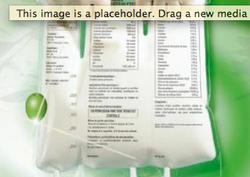 Back in 2011 a primary analysis of the EPaNIC trial was published in the New Engalnd Journal of Medicine and showed that delaying total parenteral nutrition (TPN) for one week in critically ill patients resulted in better outcomes from a range of measures includung risk of infection and earlier release. The role of weakness remained unclear. This time Hermans et al. published a prospectively planned subanalysis of this trial, where weakness was assessed in 600 ICU patients out of which 122 patients had muscle biopsies performed to study for autophagy and atrophy. They were able to show that early TPN resulted in a significant greater number of patients with weakness compared to late TPN (not before day eight after admission to ICU). Weakness also recovered faster with late TPN. Interestingly autophagy marker were higher in patients given late TPN and this was independently associated with less weakness. Dr. Van den Bergen says:"The late PN strategy, that is, not using artificial (parenteral but maybe also forcing enteral) feeding during the acute phase of critical illness, should be standard of care, as there is absolutely no good data to support benefit from such forceful feeding and there is, as we have shown, risk for harm."... and I get the feeling he might be right. Hermanns G. et al. The Lancet Respiratory Medicine, 10 September 2013; volume 1, issue 8 Casaer MP et al. N Engl J Med. 2011 Aug 11;365(6):506-17 |
Search
|


 RSS Feed
RSS Feed


